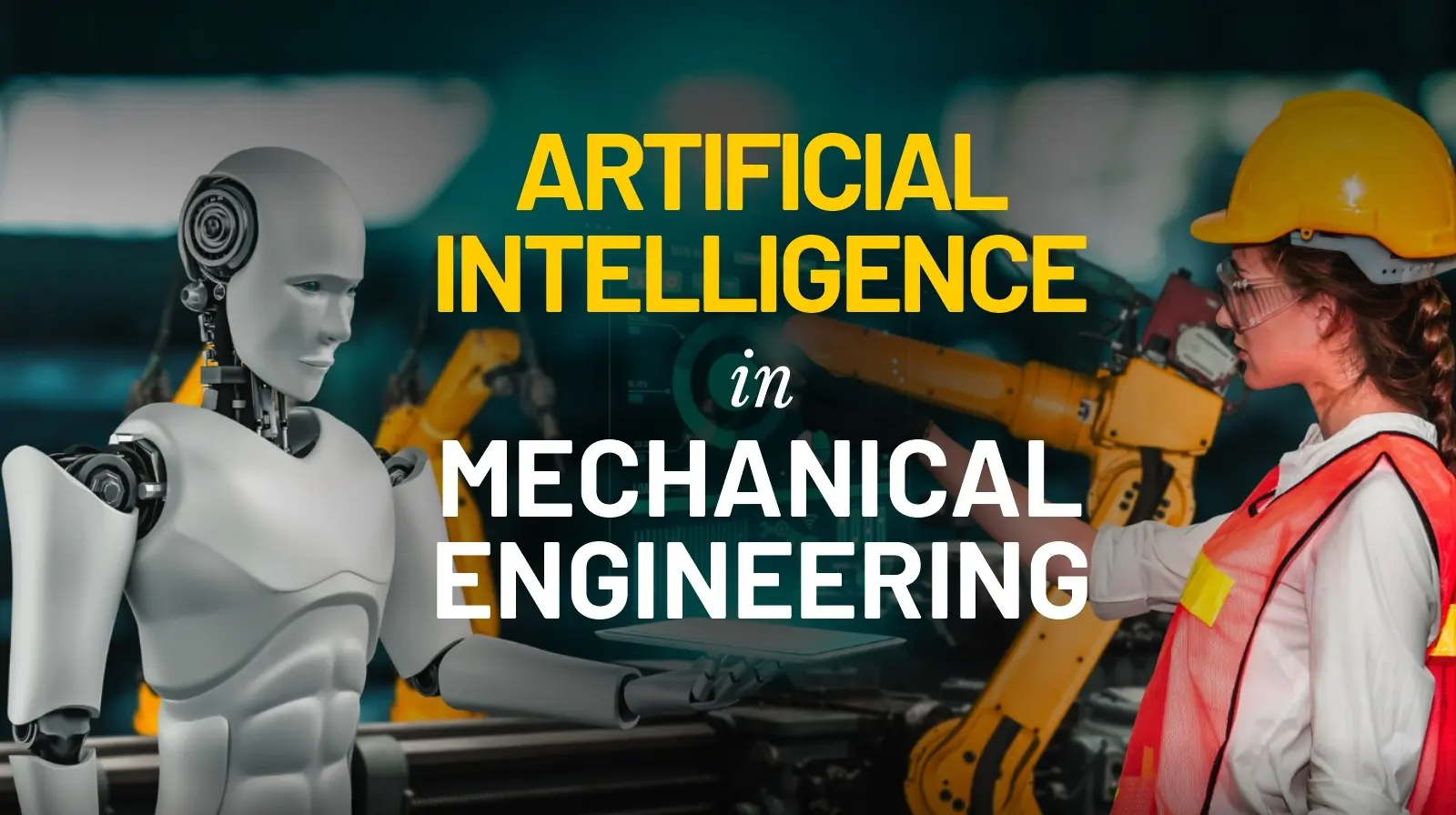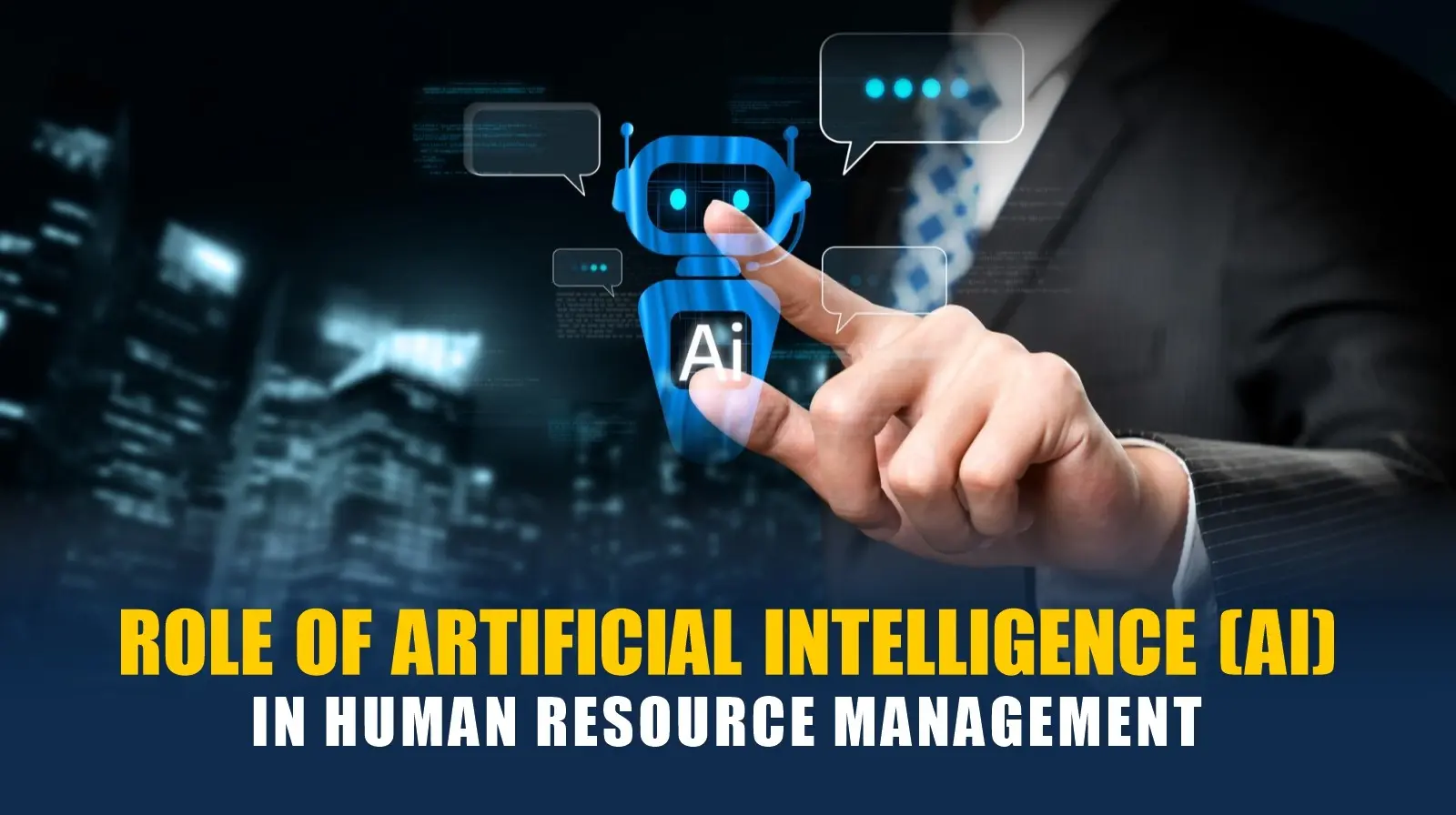Table of Contents
- The Impact of Artificial Intelligence in Mechanical Engineering
- Will Artificial Intelligence(AI) Replace Mechanical Engineers?
- Use of AI in Engineering Design
- AI-Powered Predictive Maintenance
- AI-Powered Robotics
- Data-Driven Decision-Making
- Energy Efficiency and Sustainability
- Why Should Mechanical Engineers Welcome AI?
- Challenges and Ethical Considerations in AI Integration
- Emerging Trends and Opportunities
- Conclusion
Artificial Intelligence has emerged as a key factor promoting innovation in mechanical engineering, just like in other industries. The field of mechanical engineering is transforming with the incorporation of artificial intelligence resulting in increased precision, productivity, and innovation. All areas of mechanical engineering, from design and manufacture to maintenance and optimization, are affected by the ongoing integration of Artificial Intelligence (AI) in engineering concepts.
The Impact of Artificial Intelligence in Mechanical Engineering
From advanced medical diagnostics to virtual personal assistants, artificial intelligence (AI) has touched every aspect of our lives. There are various applications of AI in Mechanical Engineering, which involves using machine learning algorithms to analyse large datasets, gather insightful information, optimise designs, and forecast accurate performance results.
Will Artificial Intelligence(AI) Replace Mechanical Engineers?
The aspiring mechanical engineers must be well-versed in artificial intelligence if entering into the job market as there is rapid advancement of technology. The aspirants who have necessary AI skills with their traditional engineering knowledge are in a position to excel in the evolving job market and contribute to innovative projects. The students can build a successful and fulfilling career by gaining valuable skills related to AI/ML.
However, still the main question remains: Will AI Replace Mechanical Engineers? The short answer to this is absolutely not. The reason for this is AI cannot replace human creativity, it amplifies it. Artificial Intelligence tools are now used to supplement human knowledge, instead of totally replacing mechanical engineers. AI helps them to focus on creative areas of their works by automating repetitive operations and offering data-driven insights. This helps in building a culture of innovation, allowing the mechanical engineers to experiment their ideas, push their boundaries and bring groundbreaking solutions to the complicated problems of the society.
There is rapid growth and evolution of AI in various industries. The role of mechanical engineers is becoming important and adaptive. As you go through the blog you will get to know as to how using AI, mechanical engineers can further benefit and empower themselves in their roles and advancements within the industry.
Use of AI in Engineering Design
Artificial Intelligence(AI) is transforming engineering design through innovative methods that improves both creativity and efficiency. With deep learning and machine learning techniques, the algorithms of AI use vast datasets to optimize designs, facilitate rapid prototyping, and predict potential challenges by identifying trends and patterns. This helps engineers to experiment and make informed decision making in the field of engineering.
AI-Powered Predictive Maintenance
AI-Powered Predictive Maintenance Systems are significantly improving equipment care practices. These systems, using sensors and data analytics can forecast potential breakdowns before they happen. Engineers can now schedule maintenance at optimal times, preventing unexpected failures. This smart approach not only reduces costly downtime but also extends equipment life, delivering significant cost savings across industrial operations.
AI-Powered Robotics
The integration of AI with mechanical engineering has significantly enhanced robotic capabilities. Modern AI-powered robots can handle complicated manufacturing tasks with high precision and adjust their operations based on real-time conditions. In production environments, these systems help improve output quality, reduce manufacturing errors, and enhance worker safety by handling repetitive or dangerous tasks.
Data-Driven Decision-Making
AI systems support decision making in the mechanical engineering field by processing and studying large operational data. The algorithms evaluate design simulations, performance metrics, and system diagnostics. This helps engineers identify optimal solutions for mechanical systems, leading to more reliable and efficient designs based on concrete performance data.
Energy Efficiency and Sustainability
AI applications in mechanical engineering help optimize energy consumption through continuous monitoring and analysis of operation patterns. The systems can adjust equipment settings based on actual usage requirements and environmental conditions. This targeted approach helps reduce energy waste while maintaining necessary performance levels.
Why Should Mechanical Engineers Welcome AI?
Mechanical engineers now view AI tools as essential rather than optional in their work. AI helps engineers find better solutions to difficult problems while saving time and money. As engineering projects grow more sophisticated, AI’s adaptable nature makes it valuable for tackling diverse challenges across the field. Companies increasingly expect mechanical engineers to use AI skills alongside their traditional skills.
Challenges and Ethical Considerations in AI Integration
The integration of AI into mechanical engineering brings remarkable benefits, but there are certain challenges as well. With widespread use of AI, engineers must deal with concerns like algorithmic bias, data privacy, and the possibility of job displacement. A well rounded strategy which comprises ethical frameworks must place a high value on justice, accountability, and transparency as well as tech solutions are needed to address such issues.
Emerging Trends and Opportunities
As we move ahead in 2025, there will be a generation of new exciting opportunities with the merger of mechanical engineering and AI. Engineers are now breaking down traditional field boundaries by acquiring new skills, closely working with data scientists and software developers. Such collaboration results in innovative solutions that combine physical systems with intelligent abilities. As artificial intelligence is becoming more interpretable and advanced, it’s changing how mechanical engineers solve problems and design new approaches and solutions to complex engineering problems.
Conclusion
The field of Mechanical Engineering continues to evolve with new technological capabilities. At Uttaranchal University, our B.Tech in Mechanical Engineering program blends foundational principles with modern technologies like AI & ML. Students gain practical experience in advanced manufacturing and automation systems. Through our hands-on curriculum, we equip future engineers with skills so that they can come up with creative solutions to solve complex problems in the mechanical engineering field.
Article written by
Blog Categories
- 1
- 3
- 1
- 1
- 17
- 8
- 16
- 1
- 1
- 1
- 1
- 1
- 1
- 2
- 1
- 1
- 5



